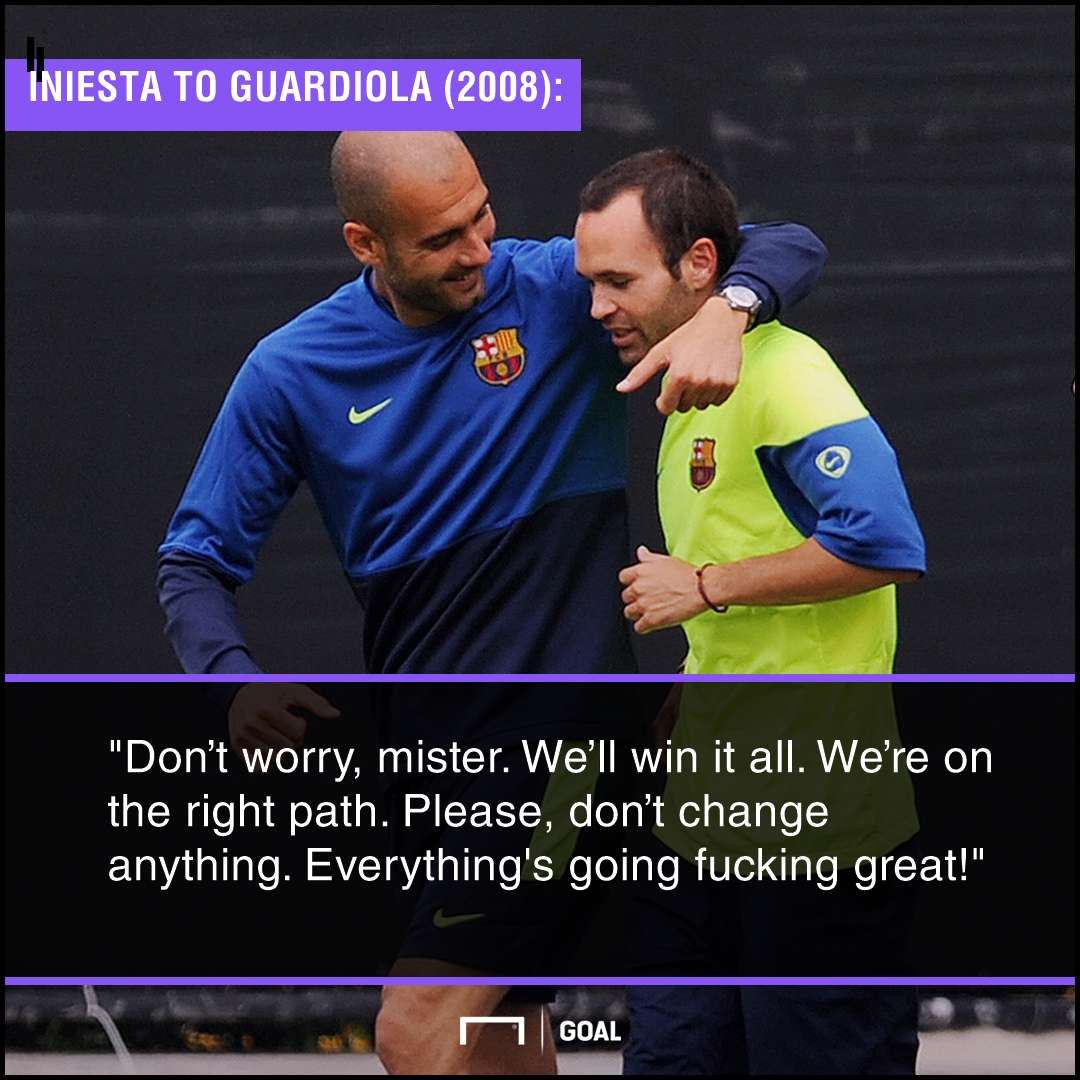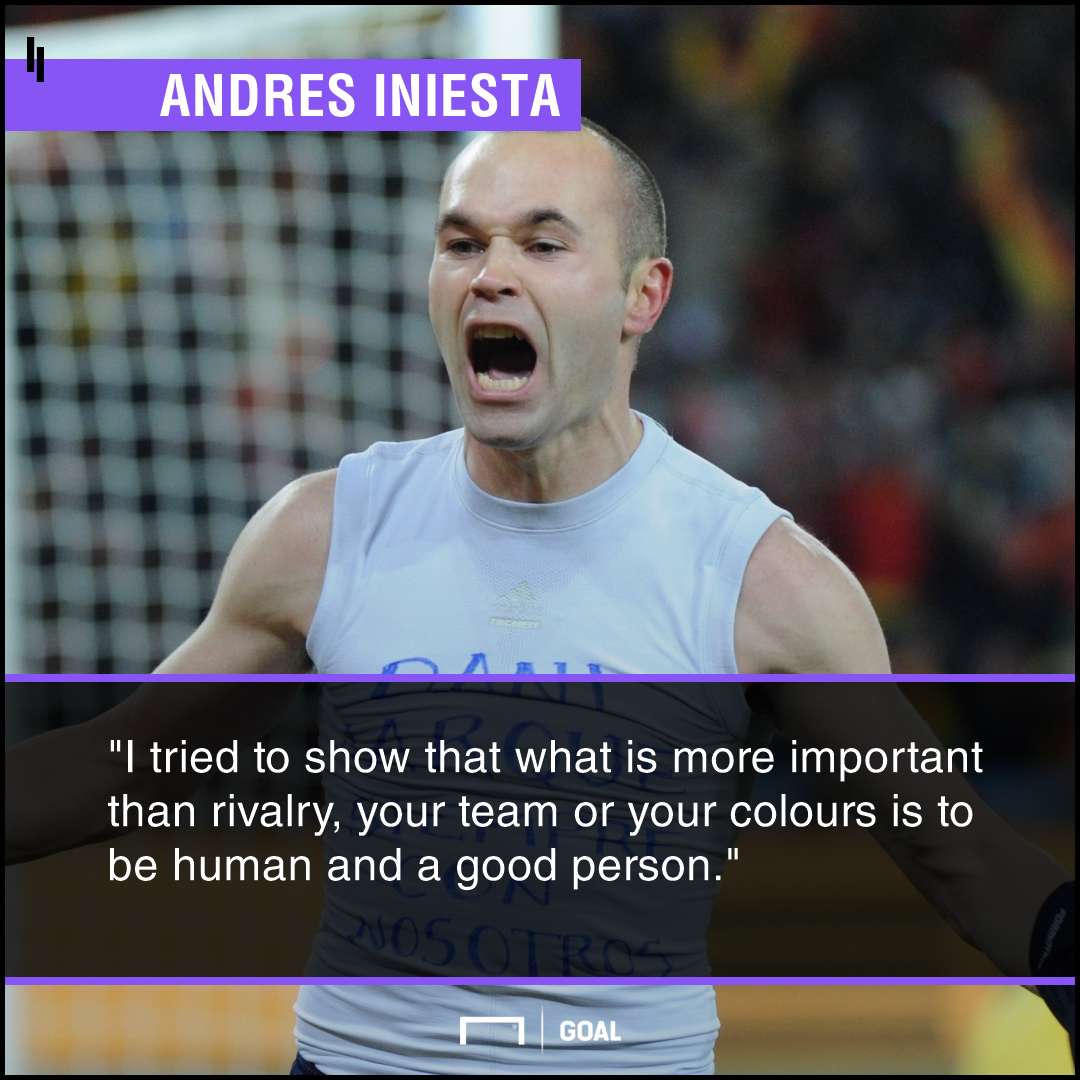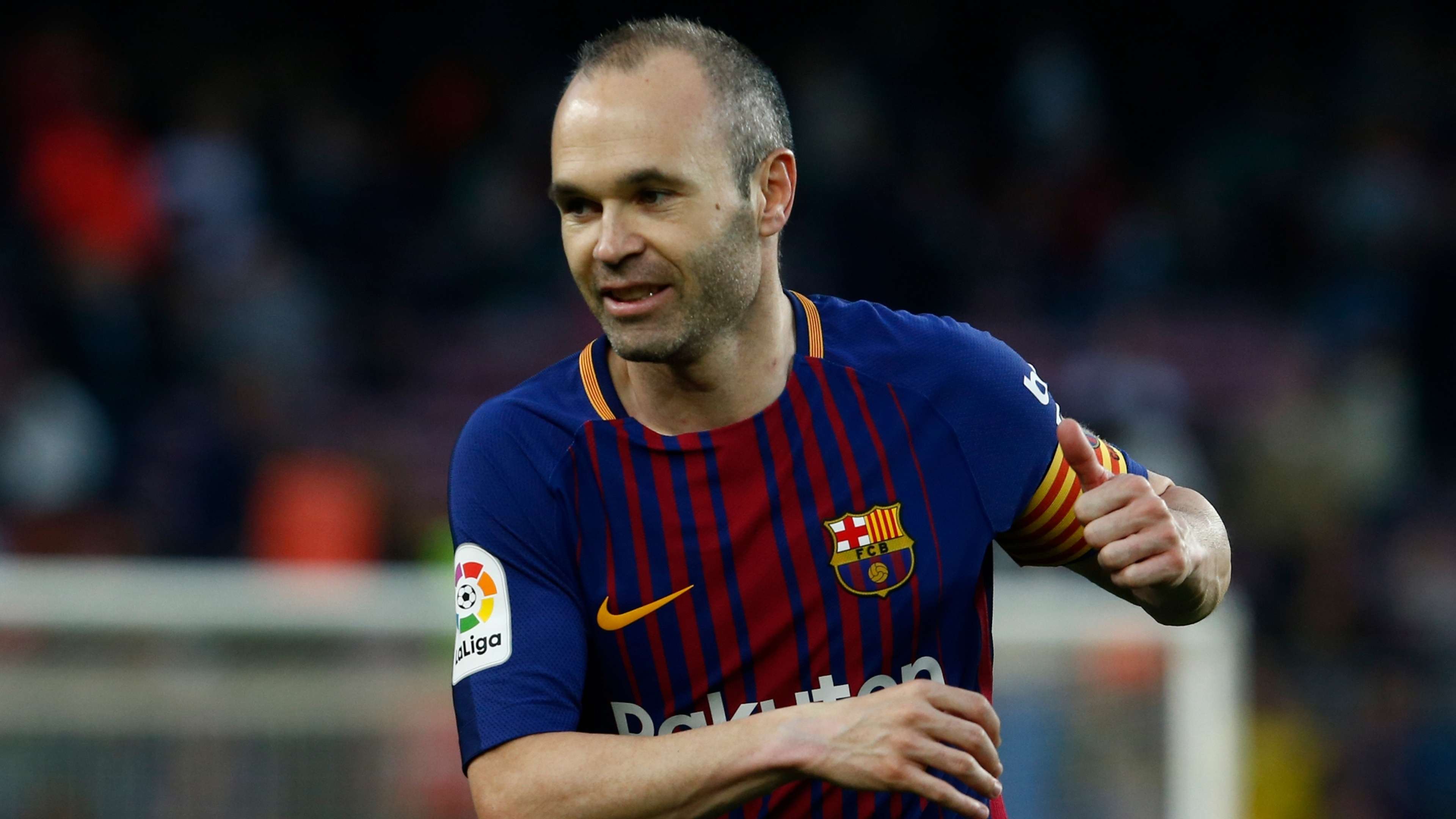On March 22, 2015, Andres Iniesta helped Barcelona take a major step towards the Liga title by beating Real Madrid 2-1 at Camp Nou.
The diminutive attacking midfielder neither scored nor assisted in the Clasico, so, the following day, much was made of the fact that it had been precisely a year since Iniesta had been directly involved in a goal in La Liga.
"My stats haven’t been good this season, far from it," Iniesta admitted to Onda Cero. "But I’ve never looked at my game purely in terms of statistics."
And rightly so.
In the modern era, statistics have become an increasingly prominent part of analysis and numbers can undeniably be helpful when it comes to determining the efficacy of a player's performance.
However, if one were judging Iniesta by his goals and assists records, he would hardly rank as one of the most productive attacking midfielders in the game today - let alone one of the all-time greats.
Even including games in all competitions, not once in his 16 seasons with Barcelona did he score more than nine goals. His average was one every 12 games.
Of course, creating goals was always more of Iniesta's forte but even in this area, his numbers aren't particularly impressive. Joaquin has amassed more assists since Iniesta made his debut in 2002.
Furthemore, Iniesta has only once hit double figures once, racking up 16 in 2012-13 – the highest by any player across Europe's 'Big Five' leagues that season.
That year aside, though, Iniesta never finished among the Primera Division's top five goal-makers.
And yet, for more than a decade, there was, as former Barcelona boss Luis Enrique put it, arguably no more "inventive" footballer in the world.
"He’s like Harry Potter," the treble-winning coach gushed in 2015. "One, two, three and whoosh; he’s past the player. It’s like he has a magic wand!"
Indeed, Iniesta was a modern-day wizard of dribble, one that left even Lionel Messi utterly bewitched.
“Andres and I are similar in that we both use our bodies a lot to avoid opponents," the Barcelona No.10 once mused. "But he has something that always amazes me.
"There’s always a moment when you think you’re going to catch him, when you think you’re going to get the ball off him, but you can’t.
"He's not especially quick, but he has that ability to always get away from you, which comes from his technique."
 Getty Images/Goal Composite
Getty Images/Goal Composite
Iniesta also understands the game like few others, because of what Pep Guardiola calls "his mastery of the relationship between space and time".
It was Johann Cruyff-like and the Dutchman's most successful discipline realised that from the first moment he saw a young Iniesta in action.
It was 1999 and Guardiola was watching the Nike Cup with Barcelona team-mate Xavi. He was dumbstruck by the skill, decision-making and vision displayed by the 15-old Iniesta, who was wearing his No.4 jersey.
At one point, he turned to Xavi, the 19-year-old midfielder touted as his heir and said, "You will retire me, but this kid will retire us both!"
Guardiola presented Iniesta with the winner's trophy that day and offered the youngster some words of encouragement. Nine years later, Iniesta would return the favour.
After Guardiola's Barca had picked up just one point from their opening two games of the 2008-09 season, according to the book 'The Artist: Being Iniesta', it was the most softly-spoken member of the Blaugrana squad who felt compelled to go to the coach's office and deliver the ultimate pep talk.
"Don’t worry, mister," he said. "We’ll win it all. We’re on the right path.
"Carry on like this, okay? We’re playing brilliantly, we’re enjoying training. Please, don’t change anything. Everything's going fucking great!"
So, Guardiola didn't, and Barcelona won the treble, with Iniesta turning in a masterclass in the Champions League final win over Manchester United despite going into the game carrying a thigh injury.
"I knew I would play injured and do more damage," he admitted afterwards. In the end, he did more damage to United than himself, with Wayne Rooney hailing Iniesta as the best player in the world after his side's 2-0 defeat in Rome.
Of course, there would be no Ballon d'Or for Iniesta that year, or any year for that matter. However, while individual honours and records became the be-all and end-all for others, Iniesta simply went about producing masterpieces, usually reserving his exhibitions – and indeed his rare goals – for the grandest stages.
He netted arguably the most important strike of Guardiola's reign – the wondrous equaliser against Chelsea at Stamford Bridge, with zero backlift – as well as winner in the World Cup final for Spain.
His extra-time effort earned him a place in the history books but it was the way in which he celebrated, revealing a dedication to Dani Jarque, the Espanyol defender who had died of a heart attack the year before, at the age of 26 – which earned him a place in the heart of every Spanish football fan.
"I did it because I felt it deeply," Iniesta said at the time. "I tried to show that what is more important than rivalry, your team or your colours is to be human and a good person."
 Getty Images/Goal Composite
Getty Images/Goal Composite
As a result, even the Santiago Bernabeu stood to applaud him after he had taken Real Madrid apart in a Clasico in November 2015, just six months after picking up the man of the match award for his performance against Juventus in the Champions League final in Berlin.
It was wholly unsurprising, then, that in his last final, in the Copa del Rey last month, he ran the show in a 5-0 rout of Sevilla, marking the occasion with only his second goal of the season.
Another Liga title followed eight days later, meaning Iniesta bows out with a remarkable 32 trophies to his name. Is it any wonder, then, that Barcelona president Josep Bartomeu describes him as the most important player in the club’s history?
Indeed, Guardiola, the mastermind behind two Champions League triumphs, insists that Iniesta didn't just encourage him, he educated him.
Upon hearing that Iniesta would be leaving Barcelona this summer, the Manchester City boss said, "I have to thank him because I learned a lot from him."
He is not alone in that regard either. “I watch Iniesta and realise that, even at my age, I can learn new things,” admitted the great Juan Roman Riquelme.
That is the greatest testament to Iniesta’s genius and his status as one of the game's most beloved players.
He will go down as teacher and an artist but, perhaps most importantly of all, a decent man who just wanted everyone to be nice to one another.
In essence, the only statistic that matters is that here is and only ever will be one Andres Iniesta.
